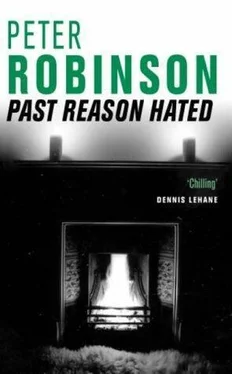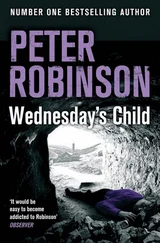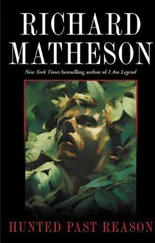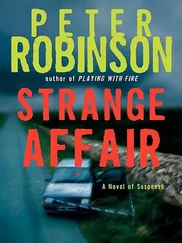Where was the child? What had happened to it? And who was the father? Perhaps if he could answer some of those questions he would know where to begin.
As far as musical knowledge went, Claude Ivers certainly seemed the most likely candidate to have brought the record. Already Banks was far from satisfied with his account of himself. Naturally, Ivers would deny having called at Veronica’s house on the night of the murder; he was known to have a grudge against Caroline Hartley. But he must have realized he had left the record. Why take such a risk? Surely he must understand that the police would have ways of finding out who had bought the record, even if there was no gift tag on the wrapping? Or did he? Like many geniuses, his connection with the practical realities of life was probably tenuous. And Ivers couldn’t have had anything to do with Caroline Hartley’s baby unless they had known one another some time ago. Very unlikely.
‘Put some carols on,’ Sandra said, ‘and stop sitting on the floor there staring into space.’
‘What? Oh, sorry.’ Banks snapped out of it and got up to freshen the drinks. He searched through the pile of records and tapes for something suitable. Kathleen Battle? Yes, that would do nicely. But even as ‘O Little Town of Bethlehem’ began, his mind was on Vivaldi’s requiem for a dead child, Caroline Hartley’s baby and the photograph of Ruth, the mystery woman. Christmas, or not, Veronica Shildon was going to get another visit very soon. He went into the hall, took his cigarettes and lighter from his jacket pocket and slipped quietly out into the backyard for a peaceful smoke.
‘Veronica Shildon, this is Detective Constable Susan Gay.’
It was an embarrassing introduction, but it had to be made. Banks was well aware of the modern meaning of ‘gay’, but he was no more responsible for the word’s diminishment than he was for Susan’s surname.
Banks noticed the ironic smiled flit across Veronica’s lips and saw Susan give a long-suffering smile in return – something she would never have done in other circumstances.
Veronica stretched out her hand. ‘Good to meet you. Please sit down.’ She sat opposite them, back straight, legs crossed, hands folded in her lap. The excessive formality of her body language seemed at odds with the casual slacks and grey sweatshirt she was wearing. She offered them some sherry, which they accepted, and when she went to fetch it she walked as if she’d put in a lot of time carrying library books on her head.
Finally, when they all had their glasses to hide behind, Veronica seemed ready for questions. Starting gently, Banks first asked her about the furniture, whether she wanted the sofa cushions and the rug back. She said no, she never wished to see them again. She was going to redecorate the room completely, and as soon as the holidays were over and the shops had reopened, she was going to buy a new suite and carpet.
‘How are you managing with the flower shop?’ he asked.
‘I have a very trustworthy assistant, Patricia. She’ll take care of things until I feel ready again.’
‘Did Caroline ever have anything to do with your business? The shop, your partner…?’
Veronica shook her head. ‘David, my partner, lives in Newcastle and rarely comes here. He was a friend of Claude’s, one of the few that stuck with me when… Anyway, he regards the shop more as an investment than anything else.’
‘And Patricia?’
‘She’s only eighteen. I assume she has her own circle of friends.’
Banks nodded and sipped some sherry, then he slipped the signed photograph from his briefcase.
‘Are you sure you can’t tell me any more about this woman?’
Veronica looked at the photograph again. ‘It was something personal to Caroline,’ she answered. ‘I never pried. There were parts of her she kept hidden. I could accept that. All I know is that her name was Ruth and she wrote poetry.’
‘Where does she live?’
‘I’ve no idea, but Caroline lived in London for some years before she came up here.’
‘And you’ve never met this Ruth, never seen her?’
‘No.’
Banks bent to slip the photograph back into his briefcase and said casually, before he had even sat up to face her again, ‘Did you know that Caroline had a conviction for soliciting?’
‘Soliciting? I… I…’ Veronica paled and looked away at the wall so they couldn’t see her eyes. ‘No,’ she whispered.
‘Is there anything at all you can tell us about Caroline’s life in London?’
Veronica regained her composure. She sipped some sherry and faced them again. ‘No.’
Banks ran his hand through his cropped hair. ‘Come on, Ms Shildon,’ he said. ‘You lived with her for two years She must have talked about her past. As I understand it, you were undergoing therapy. Caroline too. Do you seriously expect me to believe that two people digging into their psyches like that never spoke to one another about important things?’
Veronica sat up even straighter and gave Banks a look as cold and grey as the North Sea. ‘Believe what you want, Chief Inspector. I’ve told you what I know. Caroline lived in London for a number of years. She didn’t have a very happy time there. What she was working through in analysis was private.’
‘How was she when you met her?’
‘When I…?’
‘When you first met.’
‘I’ve told you. She was living with Nancy Wood. She seemed happy enough. It wasn’t a… it was just a casual relationship. They shared a flat, I believe, but there was no deep commitment. What else can I say?’
‘Was she more, or less, disturbed back then than she has been lately?’
‘Oh, more. Definitely more. As I said, she seemed happy enough. At least on the surface. But she had some terrible problems to wrestle with.’
‘What problems?’
‘Personal ones. Psychological problems, like the ones we all have. Haven’t you read the poem: “They fuck you up, your mum and dad. They don’t mean to, but they do.”’ She reddened when she’d finished, as if just realizing there had been a four-letter word in the literary quotation. ‘Philip Larkin.’
Banks, who had heard from Susan all about the Hartley home, could certainly believe that. He knew something about Larkin’s poetry, too, through Gristhorpe and a recent Channel Four special, and made a mental note to have another look at the poem later.
‘But she was making progress?’ he asked.
‘Yes. Slowly, she was becoming whole. The scars don’t go away, but you recognize them and learn to live with them. The better you understand why you are what you are, the more you’re able to alter destructive patterns of behaviour.’ She managed a wry smile at herself. ‘I’m sorry if I sound like a commercial for my therapist, but you did ask.’
‘Was anything bothering her lately? Was she especially upset about anything?’
Veronica thought for a moment and drank more sherry. Banks was coming to see this as a signal of a forthcoming lie or evasion.
‘Quite the opposite,’ Veronica said finally. ‘As I told you, she was making great progress with regard to her personal problems. Our life together was very happy. And she was excited about the play. It was only a small part, but the director led her to believe there would be better ones to follow. I don’t know if Mr Conran was leading her to expect too much, but from what she told me, he seemed convinced of her talent.’
‘Did you ever meet James Conran?’
‘No. Caroline told me all this.’
‘Did she ever tell you that he fancied her?’
Veronica smiled. ‘She said he chatted her up a lot. I think she knew he found her attractive and felt she could use it.’
‘That’s a bit cold-blooded, isn’t it?’
Читать дальше












